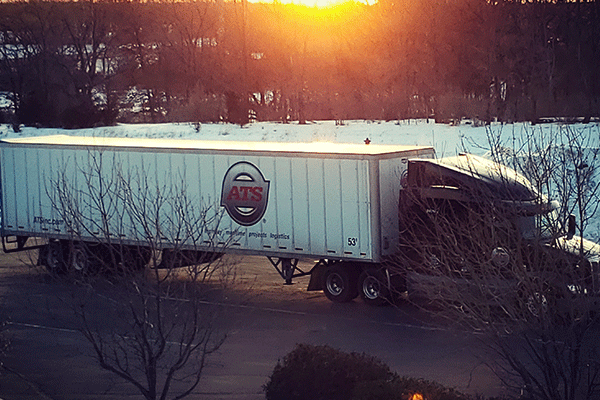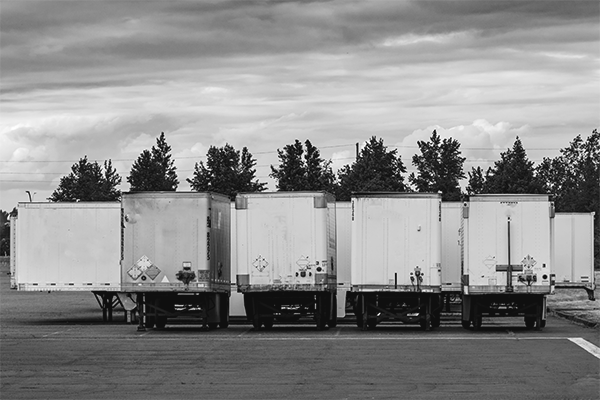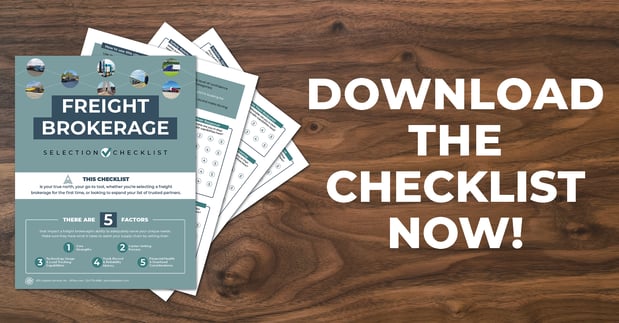Moving freight in the hospitality industry can be a complex process, especially when deadlines are tight and timelines are dynamic. Without a competent transportation partner, companies like yours can struggle to keep their supply chains on track, which can be disruptive at least and disastrous at worst.
Your company has an upcoming hospitality project and you’re here looking to get the most from your budget. You’ve felt the pain of delays due to an unkempt network of partners that get their signals crossed — causing unnecessary failures.
We’re here to say, enough is enough.
You deserve the peace of mind that comes with a well-thought-out project shipment managed with expertise and competency.
Here at ATS Logistics, we’ve been working with hospitality shippers, like you, for over 10 years. And, during this time, we’ve uncovered four overarching keys to success for shippers who need to move hospitality goods.
This past year certainly hasn’t been easy on your industry, but we hope this blog will make your job just a little bit easier. At its conclusion, this blog will leave you with four tactics to make your upcoming hospitality shipments as smooth as possible.
The four keys to successful hospitality project shipping are:
- Utilizing strategic project management
- Thinking outside the box
- Planning ahead
- Finding an experienced partner
1. Utilizing Strategic Project Management

If you have any experience in the hospitality industry, you know how many moving parts accompany these shipments and how quickly things, without proper management, can get out of order.
From three dry vans full of couches scheduled to arrive from Arizona at 10 a.m., to four truckloads of bed frames shipped from Pennsylvania and arriving at noon, overseeing the logistics of hospitality projects is not a simple task.
In an industry where timing is everything and having two trucks show up at the same time can create costly delays and throw off entire schedules, having a single point of contact to oversee the movement of all freight is crucial.
Sure, you could work with many different trucking companies scattered across regions where your inbound freight originates. From one supplier to the next coordinating pick-ups and drops, scheduling appointments and mapping routes.
Although this is certainly an option planted at your feet, the wherewithal and expertise needed to oversee these aspects of your project are high. And, with everything else on your plate, doing this properly may be too difficult to muster.
That said, we’re here to tell you: it’s ok to hand it over.
Too often, shippers don’t realize the complexity of strategically managing a project shipment until it’s too late. Coordinating across supply chains is far easier when all of the truck capacity is supplied, and monitored, by a single point of contact dedicated to your supply chain.
Many transportation companies specialize in offering these services to businesses like yours in the hospitality industry. Using their expertise, oversight and network of carriers, these providers — which often take the form of freight brokers, asset carriers or 3PLs — can add a ton of value to this process.
A dedicated, single point of contact can do great things for hospitality industry projects, including:
- Staging trucks for arrival times.
- Coordinating inbound freight to match timelines.
- Monitoring deadlines to ensure on-time deliveries.
- Communicating when delays are likely or a shipment is running late.
- Offering expertise and advice on best practices for equipment types.
- Route freight safely and efficiently.
By utilizing a single company — instead of many — for your next project shipment, you won’t deal with the issues and confusion that stems from handling multiple stakeholders during a project shipment time crunch.
2. Thinking Outside the Box

The world is changing. Populations are increasing and businesses are booming as they ramp up production to meet consumer demands. The trucking industry, however, is experiencing a pinch.
Simply put, there’s far more demand for transportation solutions than there are solutions available. Truck drivers are increasingly hard to come by which makes their expertise and services all the more valuable.
In market conditions like this — where securing a truck for your freight is more expensive than ever — the more shippers, like you, do to expand their pool of transportation options, the better.
Supply and demand truly dictate the cost of getting freight moved in the transportation industry and by opening yourself up to more options — and therefore expanding your supply of available solutions— making the most of your budget becomes easier.
Although allowing flexibility can be difficult — especially if you’ve experienced success doing something one way in the past— we encourage you to give it a try.
With so many service offerings available, there are plenty of ways to expand your pool of options on your next shipment including, but not limited to:
- Source for both dry van and reefer capacity (with the cooling unit off, a reefer functions in a lot of the same ways as a dry van).
- Look for other interchangeable trailer types where applicable (instead of simply searching for a flatbed, consider a step-deck and lowboy as well).
- Give hot shot trucking a try (hot shots, where applicable, can provide a sound solution for quickly moving small quantities of open-deck freight).
- Allow added flexibility in your pick-up and drop times wherever possible (this will increase the number of drivers willing and able to pick your freight).
Although this is by no means a comprehensive list, it should give you a better idea of the kinds of out-of-the-box thinking that will save you money and keep things on schedule this year.
The best transportation companies understand the power of out-of-the-box solutions and will be able to help you make the most of your shipping dollars.
3. Planning Ahead

This one is really quite obvious. When moving hospitality freight of all kinds, be it couches, tables, booths or any number of other items, great planning on the front end often equates to success.
As you work toward a healthy hospitality supply chain this year, be sure to give your transportation provider the lead time they’ll need to get the job done.
When it comes to moving hospitality freight, particularly when done sequentially during an ongoing project, lead time can be difficult to come by.
That said, the more time you can give your transportation partner the easier it is for them to coordinate pick-ups and drops, find surge capacity where needed and stage inbound trucks. All of these things create a recipe for good hospitality logistics and are all made easier with lead time.
But how much lead time is enough?
Ah, a question nearly as old as time. A competent provider doesn’t really need all that much. . . but all providers appreciate having more.
That said, as a general rule of thumb, providing a lead time of 24 to 72 hours before the time your shipment needs to load will allow your partner enough time to get all the necessary pieces in place for your freight’s successful transit.
Additionally, this added lead time will assist your partner as they work towards maximizing your cost savings while locating your best-fit trucking solutions.
4. Finding an Experienced Transportation Partner

Not all hospitality freight is created equally. Some require inside deliveries while others require pad and blanket wrapping services. No matter what the requirements of your freight are, you’ll want to find a provider with experience providing them.
Just like every freight shipment is different, the same can be said of transportation companies.
Each provider has expertise in some areas and weaknesses in others. As such, it's imperative that you select a partner with the competencies you need to succeed.
How can you expect a company to serve your needs throughout a project if they didn’t have the skills to begin with? Simply put, you can’t.
To ensure that the part you select has the hospitality shipping experience needed, to add value as a hospitality shipping partner, ask them the following questions:
|
|
|
|
|
|
|
|
The way that each provider — whether its a freight brokerage, 3pl or asset-company — responds to these questions should give you a good idea of how they’ll fit your supply chain.
Your timelines and goals matter. Make sure your partner has the expertise you require before trusting them with such an important portion of your livelihood.
Let’s Make Your Next Hospitality Shipment Successful
Obviously, there are a ton of things on your plate as you look toward future hospitality projects. The business of keeping people entertained and comfortable is booming and you’re in the heart of it.
Fluid timelines, tight deliveries and multi-truck projects will always be a part of your transportation needs. There’s no way around it, moving freight in the hospitality industry can be complex.
That said, the right transportation provider — a partner with the ability to oversee your start-to-finish shipping needs — can make a world of difference.
But how will you know if a transportation company is truly the right fit for you?
The Freight Brokerage Selection Checklist was developed with this query in mind and is the perfect solution for you!
 Download this guide to freight brokerage selection and gain access to a comprehensive questioning tool that will make your next selection decision far more comfortable.
Download this guide to freight brokerage selection and gain access to a comprehensive questioning tool that will make your next selection decision far more comfortable.
You deserve to feel confident in your transportation partnerships — partnerships that put you first and, more importantly, make you money. The Freight Brokerage Selection Checklist will get you one step closer to doing just that.
ATS Logistics has a long history of helping companies in the hospitality industry thrive. If you’d like more information on how we can help you with your next shipment, reach out! We’re always excited to help great companies meet their goals.

